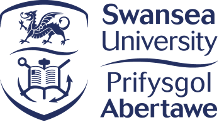New study suggests recycling face masks into road materials
Disposable face masks could be recycled to make roads, in a circular economy solution to pandemic-generated waste.
The use of personal protective equipment (PPE) has increased dramatically during the COVID-19 pandemic, with an estimated 6.8 billion disposable face masks being used across the globe each day.
The new road-making material – developed with a mix of shredded single-use face masks and processed building rubble – meets civil engineering safety standards, according to researchers at RMIT University, Australia.
They suggest that 1km of a two-lane road could use up around three million masks, diverting 93t of waste from landfill.
‘Our experimental results show that the mixture of shredded face masks and recycled concrete aggregate satisfies the stiffness and strength requirements for the base layers of roads,’ says Dr Mohammad Saberian, lead author of the research.
‘We identified an optimal mixture that is 1% shredded face masks to 99% recycled concrete aggregate. This blend delivers on strength while maintaining good cohesion between the two materials.’
Saberian explains that ‘the masks could provide higher strength and stiffness, and more flexibility to the base and sub-base of roads, as they play a reinforcing role in binding the rubble particles. The introduction of randomly distributed shredded face masks enhances the stretching resistance between aggregates.
‘Consequently, the ductility, flexibility and strength of the rubble-mask, road-making mix increases. We can build better and stronger roads by the adoption of face masks in road layers’.
Moreover, he notes, ‘too many masks are finding their way out of bins, being blown into gutters and washing down the drain, impacting our waterways and wildlife. The most severe effect is the fact that many masks are finding their ways to rivers and oceans, which is a threat to marine life and, consequently, human life’.
While the experimental study initially has used a small amount of unused surgical face masks, other research is investigating effective methods for disinfecting and sterilising used masks.
A review of disinfection technologies is said to find 99.9% of viruses can be killed with the ‘microwave method’, where masks are sprayed with an antiseptic solution then microwaved for one minute.
Published: March 5th, 2021
Posted in
News





